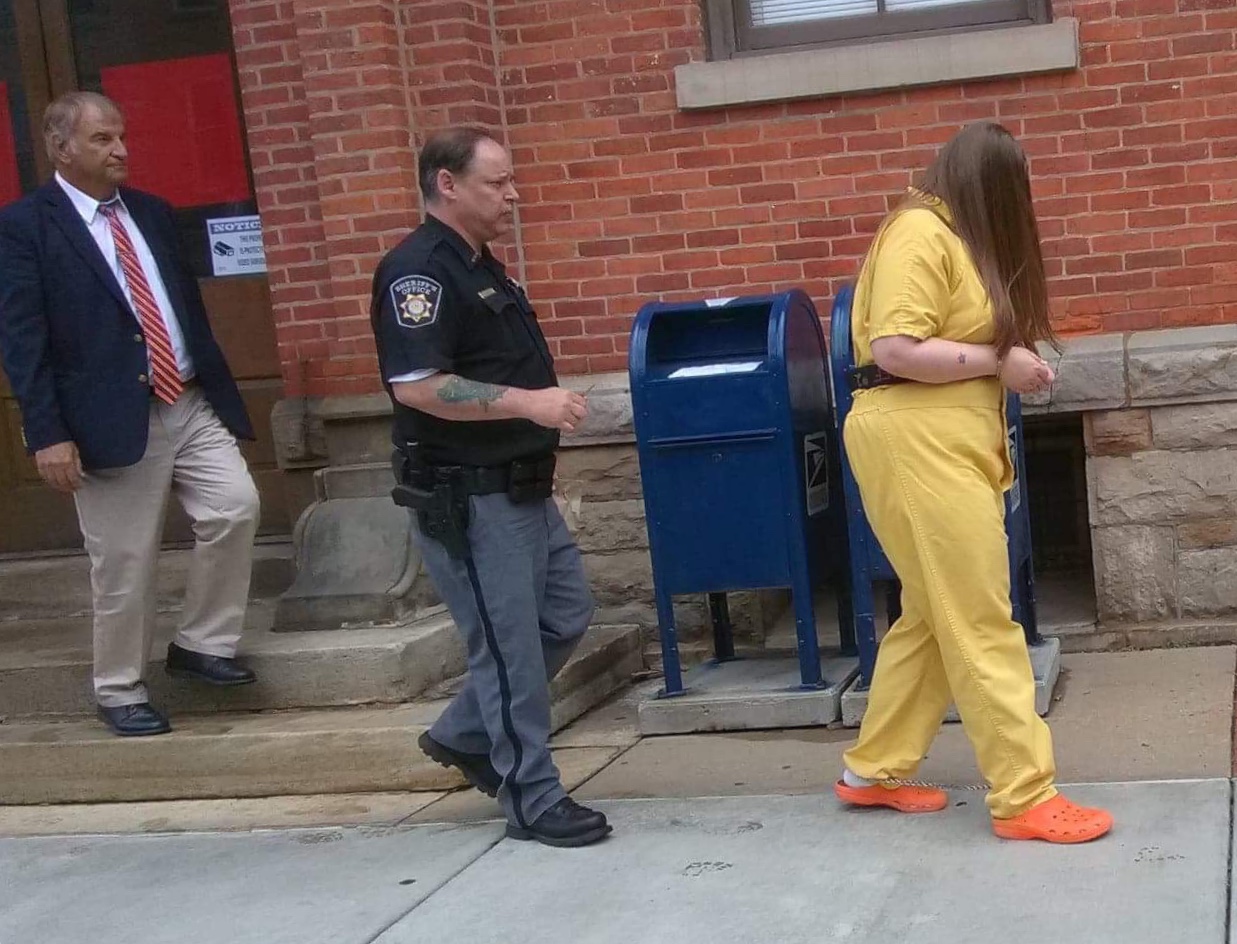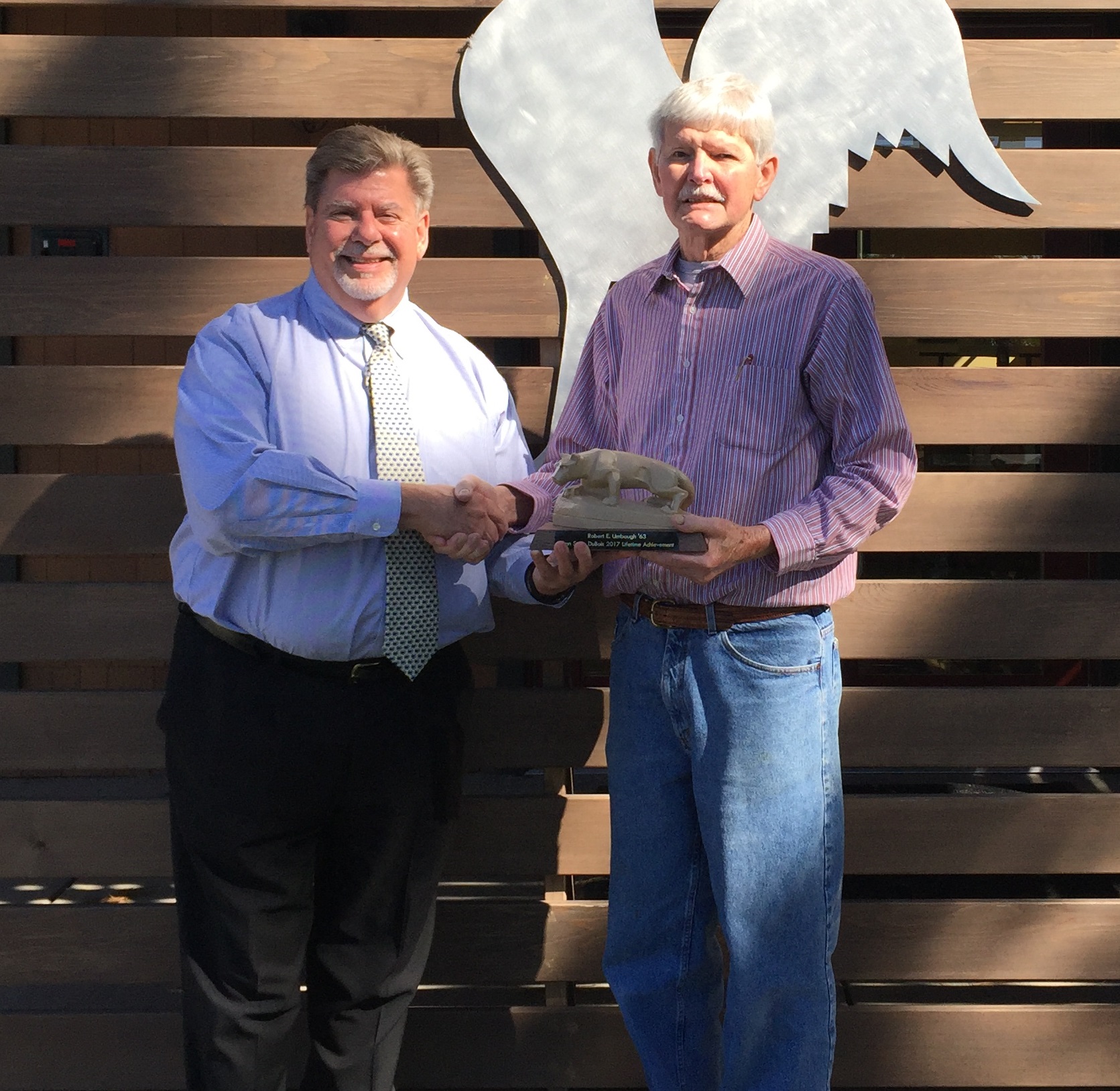
CLEARFIELD – Convicted murderer Jessica Holtmeyer was in court Friday for a special hearing with testimony regarding whether she has been rehabilitated or not.
Holtmeyer was 16 years old in 1998 when she was convicted of first-degree murder and sentenced to life in prison without a chance for parole for the death of Kimberly Dotts.
In June of 2017, the Supreme Court of Pennsylvania ruled that juveniles convicted of first-degree murder can only be given life without parole sentences in rare cases when “the juvenile offender is permanently incorrigible and thus is unable to be rehabilitated,” according to court documents.
The case is being reviewed through a post-conviction relief act petition that includes the new sentencing guidelines of a minimum of 35 years in prison for someone between the ages of 15 years old and 18 years old convicted of first-degree murder.
Senior Judge Daniel L. Howsare of Bedford County is presiding over the case because President Judge Fredric J. Ammerman was recused from the case in November of 2016, according to previous reports.
Testimony in Holtmeyer’s trial revealed that she and Aaron Straw hanged Dotts twice because they were afraid she was going to snitch on their plans to run away to Florida.
Holtmeyer, now 36, was also convicted of smashing Dotts’ face with a basketball-sized rock while the girl lay convulsing on the ground after the second hanging.
District Attorney William A. Shaw Jr. offered no witnesses for the commonwealth on Friday during a hearing, but asked that the transcript of her trial, the affidavit and impact statements from the victim’s family be included with the information for Howsare to review prior to making a decision on Holtmeyer’s new sentence.
Patrick Lavelle who is representing Holtmeyer, called three witnesses.
Troy Edwards, a re-entry coordinator with the Department of Corrections at the state prison in Muncy, testified that he has known Holtmeyer for 14 years and has worked with her in her role as a certified peer support specialist.
He explained that you need a certain skill set and “have to be really good with people” to have this position. “She actually is one of the best CPS’s we have.”
Edwards went on to review Holtmeyer’s educational accomplishments including her training as a paralegal, completing business management courses and the numerous certificates she has earned.
One of these is the completion of the voluntary House of Hope program. This program helps domestic violence victim’s deal with trauma.
He stated that she has made a lot of progress during her incarceration that began with a few misconducts.
The staff really relies on her, he said, adding that she works in the re-entry program and sees other people come home every day.
“I can’t imagine that,” he said.
Edwards said he believes she is better prepared to leave the prison than most of the others. “She has grown everywhere she’s been planted at Muncy.”
During his cross-examination of this witness, Shaw focused on the fact that Edwards said he was “honored” to speak for Holtmeyer, reminding Edwards that she is a convicted murderer.
Edwards responded that he was speaking about her growth.
Shaw asked if Holtmeyer was allowed to date on the Internet. Edwards said she isn’t, that she couldn’t be doing that and it was not possible.
Shaw then showed him documents related to online dating applications for Holtmeyer that included photos of her in civilian clothes.
Edwards stated that he didn’t know from looking at Shaw’s information, if it was even genuine.
The second witness was Devan Cole, a social worker at SCI Muncy.
She testified that she works with Holtmeyer every day and “she does a lot for me.”
Because of this position, Holtmeyer is familiar with problems faced by women going back into private life and then returning to prison. She stated that she believes Holtmeyer is ready to re-enter the outside community.
Shaw asked only a few questions including whether Cole could guarantee that Holtmeyer wouldn’t get into trouble again.
“If she was bullied, would she act out and crush someone’s head with a rock?” he asked.
At this question, Holtmeyer lowered her head.
Cole said there is really no way to know if someone will end up back in prison.
The expert witness was a psychologist and trauma specialist, Deborah Mucha, who has spoken with Holtmeyer several times and reviewed her case.
Mucha explained that Holtmeyer felt unwanted by her young mother and lived with her grandparents. She was sexually abused at a young age and was bullied later because she was overweight and different from the other children in her Catholic school classes.
She felt she was not good enough and unworthy, Mucha said.
When Holtmeyer became involved with her co-defendant, Straw, it was an abusive relationship. And because she suffered from trauma that caused “automatic obedience,” Mucha said, Holtmeyer did whatever people asked her to do.
Mucha went on to say that Holtmeyer thought Straw loved her and she was just looking “for love and acceptance.”
The House of Hope program really helped Holtmeyer, she said, stating that the person who murdered Kimberly Dotts “was gone.”
Mucha testified that Holtmeyer is extremely remorseful and “she (Holtmeyer) can’t believe that it (the murder) happened.”
Holtmeyer went from being a trauma victim to being a trauma survivor, she said.
When Lavelle asked if she was rehabilitated now, Mucha said yes, adding that she can’t see her committing another offense.
Shaw asked Mucha what would stop Holtmeyer from finding “another Aaron Straw” and doing something criminal he wants her to do. Mucha responded that Holtmeyer is not the same person.
When he asked if Holtmeyer is taking responsibility for her actions, Mucha said Holtmeyer doesn’t remember it.
“You are acting like Jessica was the victim in this case,” Shaw noted.
“She was,” Mucha said, explaining there can be more than one victim in a crime.
Shaw suggested that Holtmeyer, who was described as having an IQ of 141, may have outsmarted Mucha because she got Mucha to say Holtmeyer is the victim.
He asked what Holtmeyer is doing now to deal with her remorse. Mucha said she is “trying to live her life by helping others.”
Shaw questioned how remorseful she could be if she can’t remember what she did that day.
Lavelle asked a few follow-up questions including whether Holtmeyer was equating herself with Dotts. Mucha said no but explained Holtmeyer was a victim of things that happened in her own life.
Mucha also said she has the skills to know when she is being manipulated.
Although it was mentioned earlier in the hearing that Holtmeyer would testify herself, she declined to do this and the defense rested.
Howsare said he will review the information including briefs due by Sept. 17 before issuing a written decision. He advised Holtmeyer if she wanted to say something, she should do it now.
Saying I am sorry is not enough, Holtmeyer told the judge. “I can’t take it back. I can only move forward.”
A date for the re-sentencing in this case will be scheduled later.



